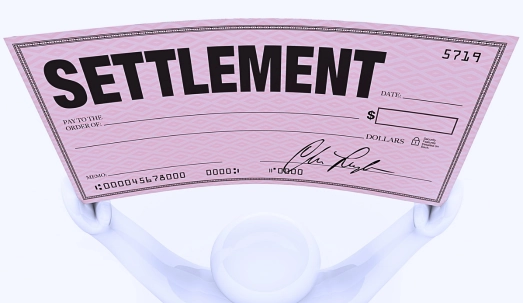If you are making an insurance claim, you should know that the insurance company is likely to give you a lowball insurance settlement offer. This is because its priority is to protect its own bottom line. Only after considering its own bottom line will it consider you.

After an accident, you may be focused on your own recovery and getting over any injuries sustained from the accident. However, medical expenses pile up, and your injuries could even lead you to lose time from work, causing you to lose out on income. In this situation, the insurance company offering a low settlement offer might bring mixed feelings. On the one hand, you might be entitled to much more compensation than what is offered. On the other hand, you could have expenses that are piling up, and receiving money as soon as possible could be useful.
If you find yourself in this situation, it is helpful to understand what the insurance company is trying to do, and what options you have to handle such a situation.
Table of Contents
Why Companies Make Lowball Insurance Settlement Offers
A settlement is the amount of money that the insurance company offers to pay you as compensation in response to a claim. Your injuries have a monetary value, for everything from medical bills to pain and suffering. A lowball settlement offer is when the company offers to pay you an amount that is much less than what your claim is worth.
Insurance companies make money by receiving premiums from clients for insurance coverage and reinvesting those premiums. The profit that they make is the difference between what they receive from premiums and investments and the compensation that they pay out for claims. Therefore, the lower the settlement amount that they can get you to agree to, the higher their own profits will be. Below are some other reasons why a company might make a lowball offer:
They Use Computer Software to Calculate the Value of Claims
Large insurance companies receive a staggering amount of claims. They have a duty to act in good faith and investigate each claim. To make the workload easier and process claims faster, they might use computer algorithms to do a preliminary calculation of your claim. These algorithms work by comparing your claim with similar ones and giving a similar settlement offer. For example, if you were a pedestrian, it will consider the average settlement for a pedestrian, and likely offer you a similar amount. There are two problems with this:
- No two cases are the same. While accidents can be similar, how the injuries affect you, and how you deal with them, are not necessarily the same as someone else. There are unique factors that an algorithm can’t consider, and you should have your case considered fairly by a human.
- The software was created for insurance companies. As such, it is designed to favor the insurance company’s interests, leading to settlement suggestions from the algorithms often being low, and not covering all the compensation that you should receive.
Computer-based assessments frequently result in a lowball insurance settlement offer. You should have an idea of what your claim is worth and ensure that you are dealing with a person who is considering your claim adequately.
Many People Do Accept a Lowball Settlement Offer
After an accident, you may have medical bills piling up and lost income creating financial pressure. Therefore, there is pressure on you to take the first offer from the insurance company, so that you can get the money quickly. Getting the money quickly might take priority over getting a fair amount of money in these circumstances.
Aside from this, many people do not know what amount of compensation is fair for them. They might not have consulted with an attorney or considered the full extent of their injuries and damages. Often people will take the first settlement offer without any questions asked. Once a person has accepted a settlement offer, he or she cannot go back to the insurance company to ask for more compensation. By the time he or she realizes that the settlement amount is not enough to cover all of his or her damages, it is too late.
Insurance companies understand this and make lowball settlement offers because they know that people will accept them. People want to get their payment quickly, do not know the value of their case, or don’t know how to negotiate with the insurance company.
The Adjuster Fails to Investigate Properly
The adjuster assigned to investigate your claim might miss important facts or evidence, or not understand the extent of your damages. This can affect the value of the claim. The adjuster might also ignore, or intentionally downplay, evidence or facts to minimize the value of your claim due to pressure from the insurance company.
If you have collected and sent evidence of your injuries, medical bills, and damages, it will be more difficult to downplay the value of your claim.
They Question Your Injuries
The insurance company might claim that you were either fully or partially at fault for causing the injuries. This can cause them to try to limit how much they are obliged to pay you, or to try to avoid paying you at all.
They might also claim that your injuries were pre-existing, from another accident, or that your injuries are not serious enough to warrant the amount of compensation that you are claiming. However, the insurance company cannot decide the seriousness or the cause of your injuries. Medical records can provide evidence in refuting this claim.
How to Know the Value of Your Claim
The damages you suffered determine the value of your claim. There are two types of damages that you can claim compensation for in an insurance claim. These are economic and non-economic damages.
Economic damages are compensation for the monetary loss that you suffer as a result of the accident. Their purpose is to put you in the financial position that you would have been in had the accident not happened. For economic damages, you can claim all past and future expenses, such as past and future medical costs, lost earnings, loss of earnings capacity going forward, and so forth.
Non-economic damages are intangible losses that occur because of your injury, such as pain and suffering and mental and emotional anguish. They are more difficult to quantify, and an experienced attorney will be able to assist you in calculating how much compensation to claim.
An attorney will be able to advise you as to what damages are appropriate for the type of accident that you have suffered. For example, a car accident attorney will know a good amount to accept when settling a car accident.
What to Do If the Insurance Company Offers a Low Settlement
If you receive a lowball insurance offer, you do not have to accept it. If you do feel that you have been lowballed by the insurance company, you can:
- Examine your policy. You can make sure that the settlement offer is compensating you for everything that you are covered for in terms of your policy. You should ensure that both you and the adjuster are fully complying with your policy.
- Communicate with the adjuster. The insurance adjuster is responsible for investigating your claim and suggesting a settlement amount. You can ask for justification for the amount that he or she has offered you. This will also give you details of any specific issues with your claim that you can address.
- Gather evidence. From the time of the accident, you should begin gathering evidence to justify your claim. This can include bills and receipts, x-rays, medical records, and doctors’ opinions. You should also gather evidence of what happened at the scene and evidence to prove that you were not at fault. This can include photographs of the scene, details of witnesses, police reports, and any other evidence that you can find.
- Negotiate. You are not obliged to either take the settlement offer or lose it. Insurance companies often make lowball offers, knowing that you will reject it and make a counteroffer. When you make a counteroffer, include evidence of your damages, as well as liability. There may be negotiations back and forth before you agree on a settlement amount.
- File a lawsuit. If you and the insurance company are unable to agree on a settlement, you can take the matter to court. Filing a lawsuit will bring it to trial, where a judge or jury can decide on whether you are entitled to compensation and the amount.
Hire an attorney from the start. An attorney will know if the insurance company is offering a low settlement and how to counter it. He or she can address any legal disputed in your case, present evidence, and take your matter to trial if necessary.





